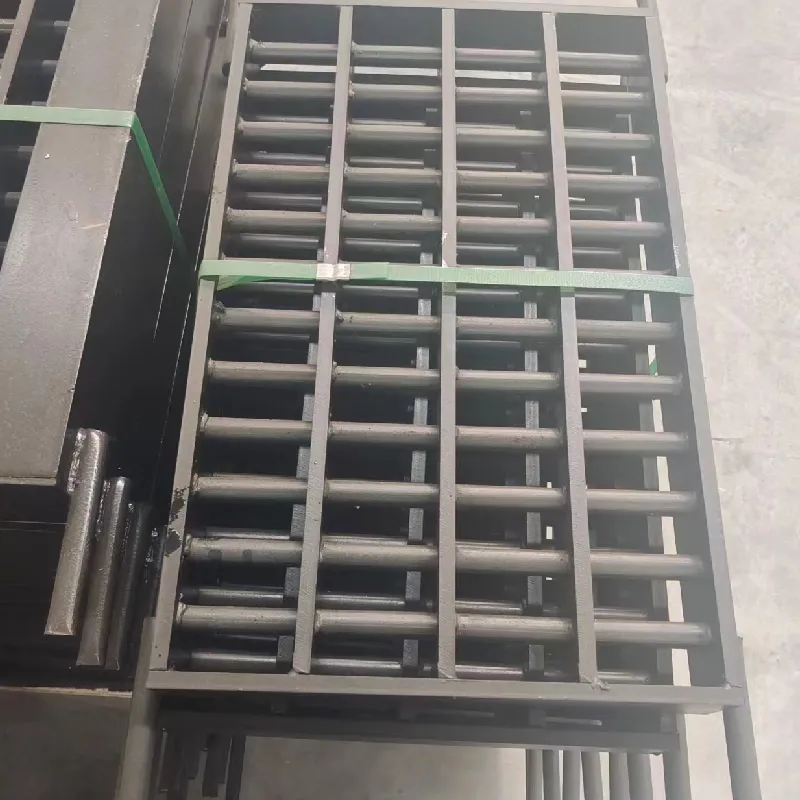septic manhole cover
The Importance of Septic Manhole Covers A Hidden Yet Crucial Component of Waste Management
When one thinks of urban infrastructure, manhole covers might not be the first item that comes to mind. However, among the myriad of elements that make our cities function smoothly, septic manhole covers play a crucial role in waste management systems, especially in areas where traditional sewage systems are not available. Understanding the significance of these often-overlooked components can shed light on their essential functions and the reasons why they require more attention.
What is a Septic Manhole Cover?
A septic manhole cover is the lid used to close the access point to a septic system's manhole. Septic systems, which are commonly employed in rural and semi-urban areas, consist of a tank that collects and treats wastewater from households. The septic manhole cover serves as an entry point for maintenance and inspections, ensuring that the system functions correctly and safely. Typically made from durable materials like concrete or heavy-duty plastic, these covers are designed to withstand outdoor conditions while preventing unauthorized access and contamination.
Functionality and Benefits
One of the primary functions of septic manhole covers is to provide access for pumping and maintenance. Regular inspection and pumping of septic tanks are essential to prevent overflow and ensure that waste is adequately treated. The cover also acts as a barrier against debris, animals, and surface water, which could compromise the system's integrity.
Moreover, septic manhole covers contribute to the safety of the surrounding environment by preventing harmful gases and odors from escaping. A properly sealed cover minimizes the risk of unpleasant smells that could be detrimental to neighboring properties. Additionally, it helps to contain any potential leaks or spills, thereby protecting groundwater sources from contamination.
Compliance and Regulations
septic manhole cover

In many regions, the installation and maintenance of septic systems, including the use of manhole covers, are subject to local regulations. These regulations often stipulate that septic manhole covers must be properly secured to prevent unauthorized access and to ensure public safety. Failure to comply with these regulations can result in fines and may pose health risks to the community. Therefore, property owners must be diligent in maintaining their septic systems and ensuring that manhole covers are in good condition.
Choosing the Right Cover
Selecting the appropriate septic manhole cover is crucial for both functionality and safety. Factors such as the cover's material, size, and weight must be considered to ensure it can withstand the environmental conditions and the weight of traffic above it, if applicable. Covers should also have a secure locking mechanism to deter unauthorized access and ensure safety.
The Value of Regular Maintenance
To keep a septic system functioning smoothly, regular maintenance is vital. Homeowners should routinely check the condition of their septic manhole covers for signs of wear and tear. Cracks, rust, or any signs of erosion can compromise the cover's effectiveness. If issues are detected, it is essential to replace the cover promptly to prevent more significant problems down the line.
Additionally, homeowners should schedule professional inspections of their septic systems to identify potential issues before they escalate. During these inspections, technicians can assess the condition of the septic manhole cover and recommend any necessary repairs or replacements.
Conclusion
In conclusion, septic manhole covers serve as a vital component of effective waste management systems. Their role in ensuring safe, efficient, and environmentally friendly waste disposal cannot be overstated. By understanding the importance of these covers and committing to their proper maintenance, homeowners can contribute to a healthier environment and safeguard their communities against potential health risks associated with malfunctioning septic systems. As cities continue to grow, paying attention to every detail of our infrastructure, including the humble septic manhole cover, will remain essential for public health and safety.
-
The Smarter Choice for Pedestrian AreasNewsJun.30,2025
-
The Gold Standard in Round Drain CoversNewsJun.30,2025
-
The Gold Standard in Manhole Cover SystemsNewsJun.30,2025
-
Superior Drainage Solutions with Premium Gully GratesNewsJun.30,2025
-
Superior Drainage Solutions for Global InfrastructureNewsJun.30,2025
-
Square Manhole Solutions for Modern InfrastructureNewsJun.30,2025
-
Premium Manhole Covers for Modern InfrastructureNewsJun.30,2025
